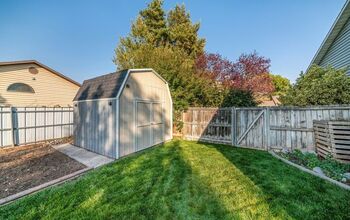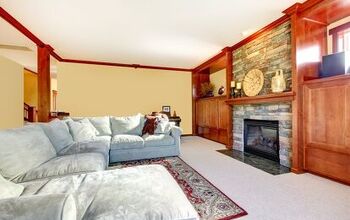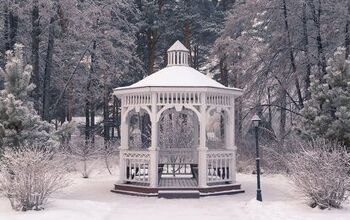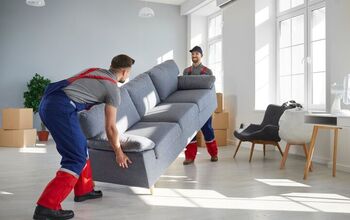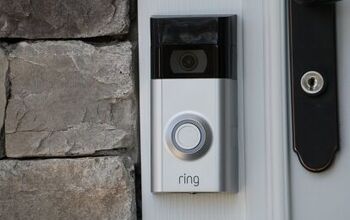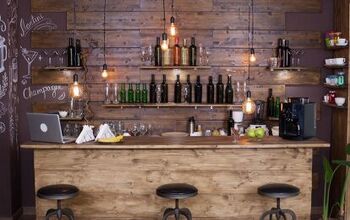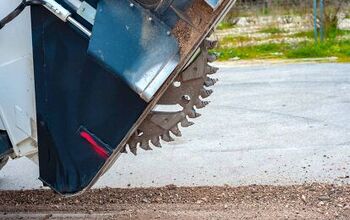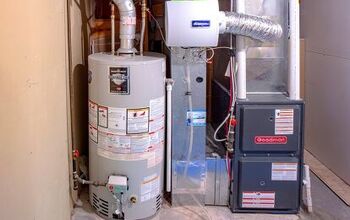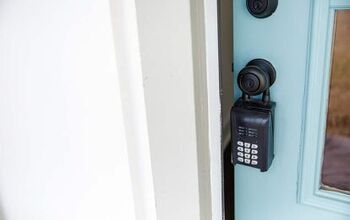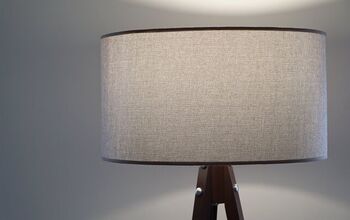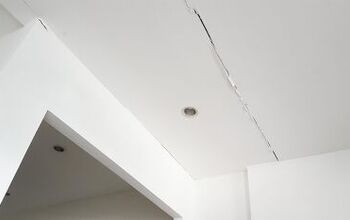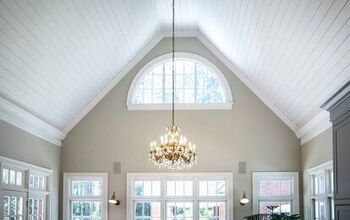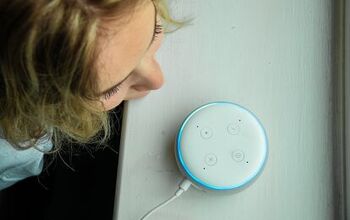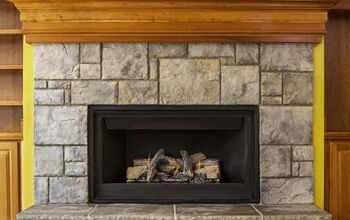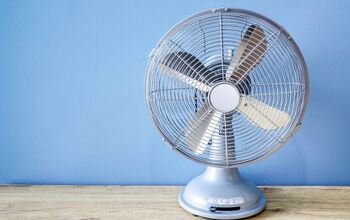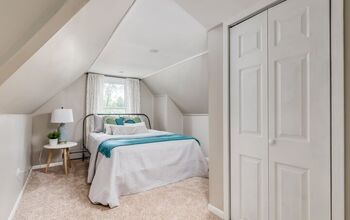My House Is Hot Upstairs And Cold Downstairs (We Have a Fix!)

Is there a drastic difference between the temperatures in the upstairs and downstairs of your house? If this is something new, you must be confused about why it is happening. After all, we all want to be able to expect what the temperature of a room will be before stepping into it. There’s nothing more frustrating than thinking you’ll have a peaceful sleep in an air-conditioned room only to find it’s more like a sauna instead.
There are several reasons why it might be hot upstairs and cold downstairs. For one thing, warm air rises. Also, you might have a hot roof caused by the sun. Faulty ductwork is another possibility. Cold air is denser and stays low, which is why your downstairs is more likely to be cool.
Finding your upstairs is hot and your downstairs is cold is a common experience. Fortunately, there are things you can do to help alleviate the problem.
Do You Need a Heating and Cooling Contractor?
Get free, zero-commitment quotes from pro contractors near you.

Why is the Upstairs of My House Hot?
There are a few reasons why the upstairs of your house can get hot. One is the fact that hot air rises. When it rises, it goes upstairs and stays there. If you have a multi-story home, it was probably designed with this understanding.
However, this can still be a problem. This is especially the case if your cooling system isn’t working as it should. If you only have an air conditioner on the first floor but not upstairs, this is a problem. After all, the cool air won’t be able to spread through the whole building.
Another factor is the fact that upstairs floor designs are often not designed to ensure the most effective airflow. There can be a problem if the upstairs has only a few windows and there is a lot of hallway space between windows. When this is the case, the airflow on the entire floor can be compromised.
The second law of thermodynamics means that heat will be attracted to cold air. This is because the heat attempts to balance out the environment’s temperature. You have seen this law at work if you have ever opened a window when your air conditioner is on in hot weather. The hot weather came in and ruined the cool temperature very quickly, didn’t it?
Why is Downstairs of My House Cold?
If the downstairs of your house is too cold in the summer, it is probably for a specific reason. If you have turned up the air conditioning higher to try to cool a hot upstairs, it’s then too cool downstairs. This is why a hot upstairs and cold downstairs can often happen together.
If you have this problem, you should consult with an HVAC professional. They will be able to tell you why this is your experience and what can be done. You may find that you need a zoned cooling system. A zoned cooling system means that your home is cooled in separate zones.
If your downstairs is especially cold in the winter, this is caused by the fact that cold air is dense. It is denser than warm air. This means that it will stay mostly on the bottom floor of your house. In the winter, you may find that the upstairs is nice and warm while the downstairs is cold.
There is also the possibility that there is inadequate air circulation. There could also be leaks in your system’s ductwork or perhaps there is an imbalance in the ductwork. Another possibility is that the ductwork and/or vents aren’t properly sized.
Basement is Too Cool and the Upstairs is Too Hot
Air stratification is the reason why there are temperature differences between different floor levels of your home. Stratification is a kind of layering. In each layer, there are huge air pockets. Each will have a different air temperature.
As hot air rises, the basement tends to be the coldest part of the house. In fact, the difference in temperature between your basement and your upstairs can be 20 degrees. This is a problem beyond the fact that you feel cold in the basement. When you feel cold in the basement, you may feel tempted to turn the thermostat to a higher temperature.
If you do this, the heat from the furnace will also go into the higher levels of the house. In fact, it will become concentrated there and the temperature upstairs will get too hot. In summer months with hot weather, the same pattern is there but in reverse. This will mean that people feeling hot on upper floors will turn the air conditioner to a cooler temperature. If this happens, people on lower floors will feel cold.
If you have this problem, you may have to repair or upgrade your air conditioning and/or heating systems, and/or insulation.
What To Do If Your House Is Hot Upstairs And Cold Downstairs
With all of this in mind, one of the following interventions may help you achieve a consistent temperature throughout your home:
1. Change your air filter.
In some cases, the simplest solutions are the most effective ones. If your HVAC system’s air filter gets clogged, the equipment must work harder to distribute air throughout your home. When this happens, your system will be less efficient but also likely less effective. Simply switching out your old air filter for a new one may be all that is needed to help regulate the temperature between the floors in your home.
2. Repair and/or insulate your ductwork.
If you can gain access to your ducts, some pointed maintenance may help reduce the problem of uneven heating without having to do any major new installations. To do this, you’ll want to inspect and repair for any ductwork that may be leaking. Then, cover the ducts in insulation to help the treated air sustain the ideal temperature until it reaches its intended destination.
Of course, if you cannot get to your ducts without ripping apart your walls, this becomes a much more difficult and invasive task. Though, it still may be worthwhile to do, especially if you want to avoid having to buy new HVAC equipment.
3. Replace your air conditioner or furnace.
Unfortunately, one of the reasons why your home may be too hot upstairs and too cold downstairs is that your current HVAC system is simply not able to maintain a consistent air temperature throughout your house. Perhaps your air conditioner or your furnace is too old or your air conditioner may be the improper size to service your home. In either case, you’ll want to speak with a professional to ensure that the equipment you purchase can keep your home at the ideal temperature.
4. Reduce upstairs heat sources.
Again, your second floor will always naturally be warmer than your downstairs floors. But, with this in mind, you can avoid worsening the issue by creating more heat upstairs. When you’re not using your upstairs rooms, make sure that you shut off the lights.
Also, try to limit your use of any heat-generating appliances, such as hair dryers, and make use of window shades to block the sun out.
5. Check attic insulation.
If your attic is not properly insulated, treated air may be leaking out of it. This can cause your second floor to be much hotter than it should be, and usually is more prevalent in the summer. Try clearing vent blockages and ensuring that you have sufficient insulation to improve the retention of cool air.
How to Keep Upstairs Cool in the Summer
One step you can take to help keep your upstairs cool is to put in better insulation and sealing. If there are any gaps in the structure of your home, your air conditioning isn’t able to work as it should. Remember to ensure that your attic is insulated, too. That air will still get into your home. Of course, your upstairs is closer to your attic than your downstairs.
Another step you can take to keep your upstairs cooler is to make sure your ventilation systems work as they should. If there isn’t the right kind of ventilation, there won’t be enough airflow. This makes keeping the area cool more difficult.
There are ways to redirect some of your air conditioning airflow to the upper floor. Do you have a basement? If so, you can find the dampers of the HVAC system on the ducts that go through to the front floor. You can help redirect air by closing them down about halfway or even more. This will help to direct more flow of air to your upper floors.
If your air conditioning system’s filter is dirty, this can also lead to a hot upstairs. Ensure you clean the filters on a regular basis. You should also replace them periodically.
If Your Air Conditioning Is Working Downstairs but Not Upstairs
It’s common for homeowners to find that their AC system is properly cooling their downstairs but not the upstairs. When this happens, your air conditioning system probably isn’t working as it should. Perhaps your air conditioning unit is too old and needs to be upgraded.
Sometimes you can go with repairs instead of replacement. You will need to get the opinion of an HVAC professional. If your air conditioning system is older than 10 years old, you will probably need to upgrade it.
How Do I Keep My Whole House Cool?
To make sure your whole house is properly cooled, check the HVAC system’s blower fan. You should make sure that the blower fan is running on a constant basis. Don’t worry about energy use. Keeping the blower fan of your air conditioning system running constantly won’t use too much energy.
In fact, it may even reduce energy usage. That is because your system won’t need to do as much cycling. To keep the blower fan on, check its setting. It should be “on” instead of “auto.” Many homeowners don’t check this because they assume it must already be on the right setting. If you don’t know how to check or change this on your central air system, consult with a professional.
If you find your air conditioner fan isn’t working properly, there may be problems with the motor or capacitor (or both). Other possibilities are problems with a lack of power or a faulty compressor contractor. If the fan isn’t spinning and there is a buzzing noise, the capacitor may be the problem. Your windows need to be properly insulated. If they aren’t, your air conditioning system will have difficulty keeping your entire house cool. Check to see if there are any gaps, cracks, or holes around your windows.
Do You Need a Heating and Cooling Contractor?
Get free, zero-commitment quotes from pro contractors near you.

Related Questions
Why is Downstairs So Cold in the Winter?
As cold air is denser and warm air rises, your downstairs may be colder than your upstairs. Make adjustments to your system. You may also consult with a professional. If you still have the problem and inconsistent temperatures remain, your heating system may not be powerful enough. A furnace that isn’t the right size for your house will have trouble heating the whole house.If you have a heating system that is too small, you will end up with more problems and even more expenses with your energy bills. If you find that you have the correct heating system and yet it’s still cold downstairs, insulation is probably the issue. Check to see if you have adequate insulation for your downstairs.
Is my HVAC System Broken if My Wall Thermostat is Broken?
No, a broken wall thermostat doesn’t necessarily mean that your HVAC system is broken. A broken thermostat might show itself with an inaccurate temperature or an empty display. Alternatively, there may be other problems. Troubleshoot to figure out the source of the issue. Try verifying the power source and settings. You should also clean the thermostat and change the battery.

We are a team of passionate homeowners, home improvement pros, and DIY enthusiasts who enjoy sharing home improvement, housekeeping, decorating, and more with other homeowners! Whether you're looking for a step-by-step guide on fixing an appliance or the cost of installing a fence, we've here to help.
More by Upgraded Home Team




